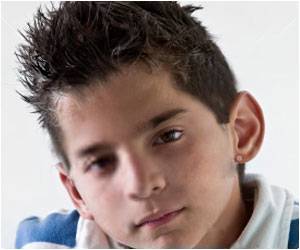Around 2.5 percent of four and five year olds have autism spectrum condition when compared to 1.5 percent of all 10 and 11 year olds in Australia.

Dr Emma Sciberras and the team examined the development of 10,000 children from a wide range of backgrounds for their study.
"What we're going to do is continue to follow this group to see whether or not it does represent a shift towards the younger diagnosis or whether or not diagnosis will continue to rise. It may indicate a shift towards a younger age of diagnosis in young children," said Emma.
Dr Greg Rowell, a pediatrician with Sydney Children's Hospital and Royal Prince Alfred Hospital, said, “ I see a new case of autism in a preschooler under the age of three around once every week or two. I think the number diagnosed is definitely going up, that's pretty much beyond dispute and I think we are also getting better methods of diagnosing children."
More than 80 percent of all of the children diagnosed with an autism spectrum disorder in the study were boys and the researchers still do not understand the reason. They suggested that it may be down to genetic weaknesses in males. "No doubt males are four to five times as likely to have an autism spectrum diagnosis as females. It comes back to the issue of why the incidence of autism is probably increasing and it's probably that people who carry the genetic tendency are getting together with people who also have similar genetic tendencies and that's called assortative mating."
Experts say the education system needs to be prepared for a growing number of students with autism. Improvements are also needed in education for teenagers and adults.
Advertisement
She said, "Young adults with autism can really benefit from continued training in the five or so years after school to support them into being independent, to be able to hold down jobs, find jobs that they enjoy, and to be able to just be part of the community generally, so to engage socially, to develop relationships. They really do want the same things as anybody else, they just need a little bit more help and guidance in getting there."
Advertisement













